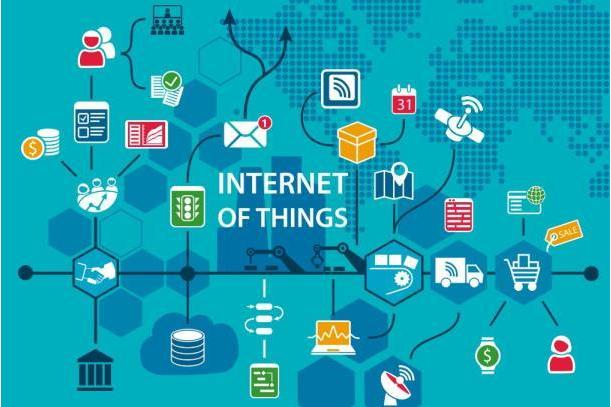Latest News
Internet of Things propels growth in global ICT goods trade

News Highlight
Global imports of ICT goods reached $2.1 trillion in 2017, with developing economies accounting for 54 percent of market share.
The rise of Internet-of-Things (IoT), which refers to the idea of connected devices, is driving demand for electronic components used in information and communications technology (ICT) devices, according to new figures released by United Nations Conference on Trade and Development (UNCTAD). In a statement released by UNCTAD on Monday, global imports of ICT goods reached $2.1 trillion in 2017.
The UN agency said the increased demand for electronic components is a reflection of the fact that more and more products and activities are going digital. IoT consists of everything connected to the internet, from mobile devices to industrial machines, robots and humans. It is facilitating hyperconnectivity and enabling businesses to operate more efficiently and improving the customer experience.
“The expansion of electronic components, which are the basic building blocks of electronic circuits and semiconductors, reflects the fact that more and more products and activities are going digital worldwide,” said Shamika N. Sirimanne, Director of the Technology on Logistics Division at UNCTAD. “Much of this trend can be associated with the advent of the IoT, which has witnessed unprecedented growth since 2015.”
Sirimanne added that the IoT trend might be further accentuated in the coming years. The UNCTAD report also said global ICT goods imports rebounded in 2017 – growing at 6 percent – following a decline in the previous two years. ICT goods trade represented 13.4 percent of the total merchandise trade, down from the 16.1 percent high recorded during the dot-com boom in 2000.
Among ICT products, UNCTAD said trade in electronic components continued to expand with an annual growth rate of 8 percent – just below that of computers and consumer electronics (9 percent). The electronic components market also shows long-term, steady growth.
Among the regions with the highest imports, developing economies accounted for 54 percent market share, importing more than developed economies. The UN agency said this is because they have a more significant role in assembling ICT goods. Developing countries also showed a stronger preference for communication equipment over computers and peripherals. This is in line with the implementation of mobile-first strategies.
ICT goods imports to developed economies grew at 10 percent annually, while growth in ICT goods imports in economies in transition in South East Europe, the Commonwealth of Independent States grew by 29 percent.
Nevertheless, the growth in ICT goods imports in developing economies – at 3 percent – is significantly lower than developed economies imports – which grew at 10 percent annually – while growth in ICT goods imports in transition economies in South East Europe, the Commonwealth of Independent States grew by 29 percent.
China is by far the largest exporter of ICT goods, followed by South Korea, which also had the highest growth rate among the top 10 exporters in 2017. Exports also grew significantly for all the other top ten exporters, except the United States. The top 10 exporters controlled a market share of about 86 percent in 2017.
Among the top ten importers of ICT goods, the United States was the top importer, followed closely by China and Hong Kong. Mexico was the only economy among the top 10 where ICT goods imports did not grow in the review period.
Related News
Latest Blogs
- Tinubu, Fubara, Wike and the fragility of democracy
- Historical insights for Nigerian Cabotage Vessel Financing Fund
- Rethinking Nigeria's development for people-centred outcomes
- Moving from prohibition to regulation, what’s next for crypto in Nigeria?
- The way out of Africa’s unsustainable debt and underdevelopment
Most Popular News
- Artificial intelligence can help to reduce youth unemployment in Africa – ...
- Allianz identifies wildfires as a growing global threat
- UNESCO highlights economic, cultural potential of Africa's book industry
- Mobile industry emissions cut must double to hit net zero
- Global carbon pricing mobilises over $100 billion for public budgets
- African Development Bank elects Sidi Ould Tah ninth president









